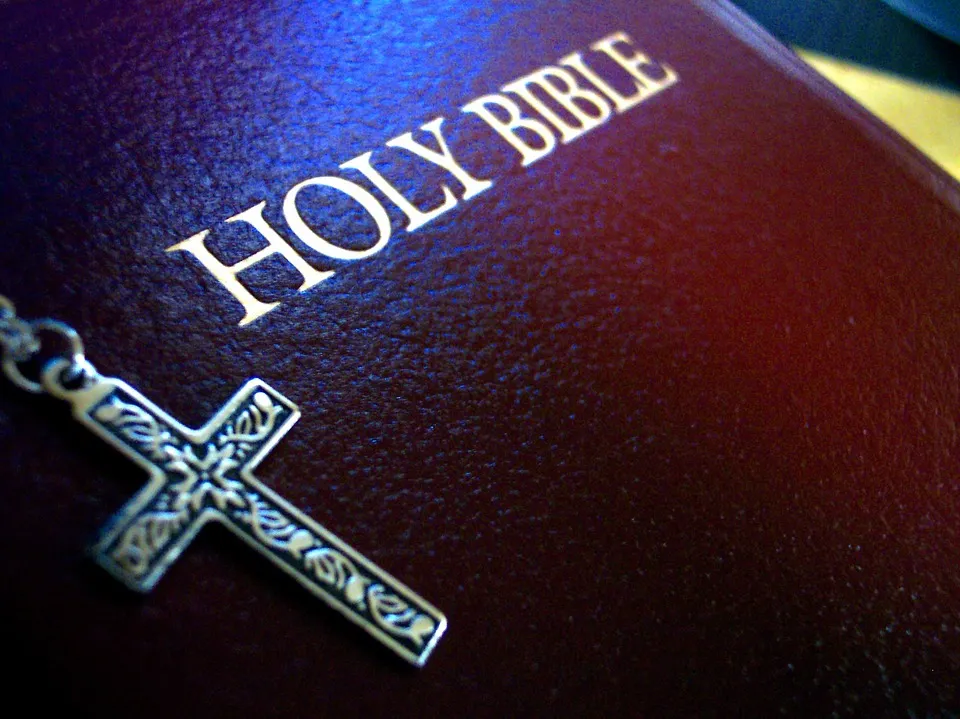One of the most profound questions people often grapple with is what happens to us immediately after death. It’s a question that can evoke a multitude of responses, and for many, they look towards spiritual texts for guidance. According to the Bible, there are specific teachings about what occurs right after one’s demise.
The Bible presents a clear-cut view on life after death which can provide comfort and clarity in times of grief. It offers assurance that death isn’t the end, but rather a transition into another phase of existence. In particular, it suggests that believers are instantly transported into the presence of God (2 Corinthians 5:8).

Yet, it’s also important to understand that the Bible speaks about an eventual resurrection and judgment day (Revelation 20:11-15), where everyone will be held accountable for their actions during their earthly lives. This might seem daunting, but understanding these biblical perspectives can bring peace in grappling with mortality.
Understanding the Concept of Afterlife
When one ponders what the Bible says about life after death, it’s easy to become intrigued. It seems that scripture paints a vivid picture of an existence beyond our mortal coil. The concept of an afterlife isn’t simply a single, uniform idea in the Bible – rather, it evolves and matures throughout both Old and New Testaments.

Heaven is often mentioned as our eternal destination when we shuffle off this earthly plane. John 14:2-3 shares Jesus’ comforting words: “In my Father’s house are many rooms…I am going there to prepare a place for you.” From this passage, it’s clear that heaven is viewed as a real location where believers will dwell with God eternally.
On the other side of the spectrum, hell is depicted as a place of eternal punishment for those who reject God’s love and grace. Revelation 20:10 describes it as “the lake of fire,” where wrongdoers face unending torment.
The concept of resurrection also plays into biblical views on life immediately after death. This belief centers on the notion that at Christ’s second coming, believers’ bodies will be raised from their graves and transformed into glorified bodies like His own (1 Corinthians 15).
Finally, some scriptures allude to an intermediate state or temporary resting place between death and resurrection. Luke 16 presents an account of Lazarus and a rich man existing in such states before final judgement – one in comfort, another in anguish.
So while interpretations may vary slightly depending on denomination or personal beliefs, these key elements remain consistent across most Christian perspectives on what happens immediately after death according to the Bible.
Biblical Perspectives on Life After Death
Delving into the Bible’s take on what occurs after we draw our final breaths can be a bit like piecing together an intricate puzzle. The good book doesn’t explicitly lay out a detailed description of the afterlife, but it does provide glimpses that allow for speculation and interpretation.
One of those glimmers comes from Luke 23:43 when Jesus assured one of the criminals being crucified alongside Him that “Today you will be with me in paradise.” This statement suggests immediate transition to a positive afterlife, at least for some. So, it’s clear that according to the Bible, there’s no ‘buffer period’ after death – our spirits are immediately ushered into eternity.
However, don’t rush to any conclusions just yet. In John 5:28-29, Jesus speaks about a future resurrection where all those in their graves will hear His voice and come forth – some to everlasting life and others to judgment. Does this mean there’s still life (or rather existence) beyond death before this resurrection? It’s hard to say.
There are more instances throughout scripture hinting at consciousness post-mortem. One such example is found in Revelation 6:9-11 where martyrs cry out from under an altar asking God how long until their blood is avenged. Sounds pretty conscious right? Yet again though, it leaves us wondering if this scenario is the norm or unique exceptions for certain folks.
In essence, while the Bible provides intriguing insights into life after death, it largely remains wrapped in mystery. Whether it’s immediate blissful paradise or some form of conscious waiting game until judgement day, one thing’s certain – death isn’t viewed as an ‘end’ per se within Christian theology; instead it marks a transition into eternal realms.
What Happens Immediately After Death: A Biblical View

When a person breathes their last, many wonder what follows. According to the Bible, there’s a specific sequence of events. It starts with the soul separating from the body – an occurrence that marks physical death.
The Bible gives us some insight here. In Ecclesiastes 12:7 it says, “Then shall the dust return to the earth as it was: and the spirit shall return unto God who gave it.” Here, ‘dust’ symbolizes our mortal bodies while ‘spirit’ refers to our soul. This suggests that upon death, our souls instantaneously go back to God for judgment.
Now you might ask – what exactly is this judgment? Hebrews 9:27 provides an answer: “And as it is appointed unto men once to die, but after this the judgment.” The Bible paints a picture where immediately following death comes divine judgment.
But let’s dive deeper into what this judgement entails:
- For believers in Christ, they’re ushered into what Paul describes as being “at home with the Lord” (2 Corinthians 5:8). They’re rewarded eternal life in heaven.
- On flip side though, unbelievers face eternal separation from God or what’s often referred to as Hell (Revelation 21:8).
It’s also worth mentioning that some Christians believe in a temporary state known as Purgatory – although not directly mentioned in Scripture. They opine that it serves as a purification phase before entering Heaven.
So there you have it – one biblical view of what happens immediately after death!
Controversies and Misinterpretations About Post-Death in the Bible
Diving right into the thick of things, it’s clear that there are diverse interpretations concerning what happens immediately after death according to the Bible. There’s a fascinating array of beliefs, ranging from notions of purgatory to instant heaven or hell. Now, let’s peel back some layers behind these controversies.
One common misinterpretation stems from the concept of ‘soul sleep’. This term is used to describe a state where souls rest peacefully until Judgment Day. However, scriptures like Luke 23:43 indicate an immediate transition to paradise post-death. Jesus says to one of the criminals on the cross, “Truly I tell you, today you will be with me in paradise.”
The belief in Purgatory often stirs up controversy too. Rooted primarily in Catholic doctrine and less so in Protestant teachings, it suggests a purification process for souls before entering heaven. Yet many argue this contradicts passages such as Hebrews 9:27 stating “it is appointed unto men once to die, but after this the judgment.”
In addition, there’s been considerable debate over whether Hell exists as an eternal torment or simply a final destruction (annihilation). Those who support annihilationism believe wicked souls cease to exist after death while traditionalists hold onto endless suffering.

Lastly, we can’t ignore reincarnation – a belief more aligned with Eastern religions than Christianity – which has found its way into some modern Christian sects’ doctrines. However traditional interpreters assert this goes against biblical teachings about resurrection and eternal life.
So there you have it folks! A whirlwind tour through some major controversies and misinterpretations about what happens post-death according to the Bible. It’s indeed a complex and multi-faceted topic that invites further exploration.
Conclusion: Embracing the Uncertainty of Life Beyond
Life beyond death, it’s a mystery that leaves many pondering. The Bible offers a glimpse into what might await us on the other side. It speaks of a spiritual existence, where those who’ve lived righteously will find eternal peace and joy.
Yet, it’s important to remember that these descriptions are metaphorical interpretations of realities beyond our human comprehension. They’re not meant to be literal roadmaps but comforting assurances that there is indeed life after death.
The Bible also emphasizes that our focus should be on living a fulfilling life here and now. It encourages us to seek goodness, show kindness, and cultivate love – values which will make any afterlife worth entering.

While we can’t know for certain what happens immediate after death, the Bible gives believers hope of an eternal existence in God’s presence:
- Revelation 21:4: “He will wipe every tear from their eyes. There will be no more death or mourning or crying or pain…”
- John 14:2: “In my Father’s house are many rooms… I am going there to prepare a place for you.”
So rather than fearing the unknown of what comes next, let’s embrace the uncertainty with faith and courage. If nothing else, it teaches us to value every moment we have here on earth while striving for goodness in anticipation of whatever lies beyond.












